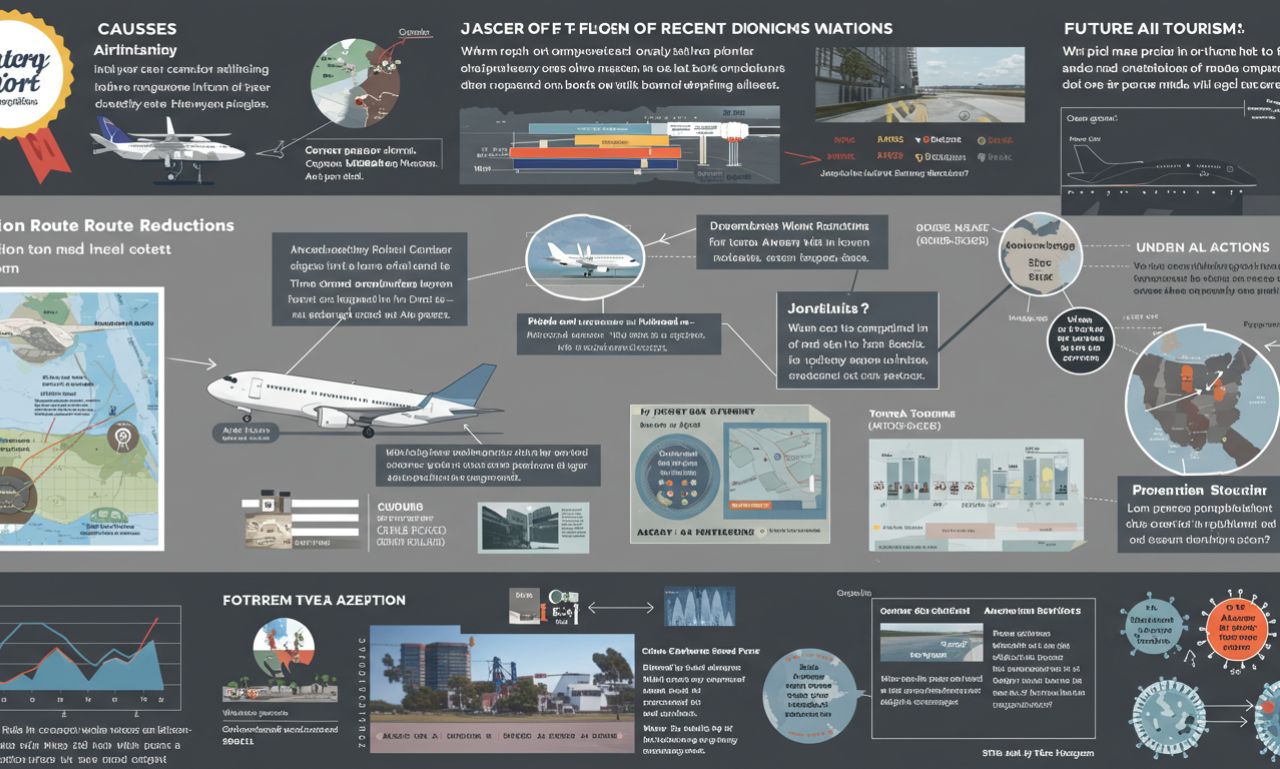In recent years, air travelers in Northeast Florida have become increasingly familiar with the term Jacksonville flight discontinuations. Airlines have begun cutting or reducing services to and from Jacksonville International Airport (JAX), leaving passengers, local businesses, and tourism stakeholders wondering what’s driving these changes. From economic challenges to evolving airline strategies, multiple factors are contributing to this shifting landscape.
This article dives deep into the reasons behind these flight reductions, the implications for the Jacksonville region, and what travelers can expect going forward.
The Rise and Decline: A Brief History of Jacksonville’s Air Travel Scene
Jacksonville International Airport has long served as a vital hub for travelers in the southeastern United States. Historically, JAX boasted a steady stream of domestic flights and seasonal international service. However, beginning in the late 2010s and intensifying post-pandemic, Jacksonville flight discontinuations began to affect routes once considered reliable.
Airlines like JetBlue, Frontier, and American Airlines have periodically pulled routes due to changing market conditions, pilot shortages, or cost-cutting strategies. For residents and visitors alike, these cancellations have disrupted travel plans and business operations.
Factors Contributing to Jacksonville Flight Discontinuations
1. Airline Consolidation and Cost Efficiency
Airlines across the U.S. have increasingly consolidated routes to optimize fuel use and staffing. Jacksonville, considered a mid-sized market, has seen flights rerouted to larger hubs like Atlanta, Charlotte, and Orlando. This move is often done to improve airline efficiency, but it leaves smaller cities underserved.
2. Pilot and Crew Shortages
A major factor in Jacksonville flight discontinuations is the ongoing pilot shortage. After a wave of early retirements during the COVID-19 pandemic, airlines have struggled to hire and train enough pilots and flight attendants. As a result, carriers have prioritized high-demand, profitable routes, often bypassing cities like Jacksonville.
3. Economic Considerations
The broader economy also plays a role. Rising fuel prices, inflation, and changing travel demand patterns have forced airlines to reassess their route maps. Jacksonville’s flight volume, while consistent, may not offer the profit margins airlines need to maintain certain routes.
4. Shift in Travel Behavior
Since the pandemic, there’s been a shift in how people travel. Remote work and hybrid arrangements have reduced business travel—a core source of airline revenue. With fewer weekday business flyers, Jacksonville routes catering to corporate passengers have seen decreased demand.
Major Routes Affected by Jacksonville Flight Discontinuations
Several key routes have been reduced or cut entirely:
-
JetBlue’s nonstop service to Washington, D.C. and New York (JFK): Suspended due to low profitability and fleet realignment.
-
Frontier’s budget-friendly flights to Las Vegas and Denver: Removed as part of broader route streamlining.
-
American Airlines’ connection to Chicago O’Hare: Reduced in frequency, affecting travelers heading to the Midwest.
These discontinuations have led to fewer nonstop options and increased layovers for Jacksonville passengers.
Impacts on Local Economy and Travelers
1. Tourism and Business Travel Decline
Fewer flights can mean fewer tourists. Jacksonville, with its beaches, golf courses, and cultural attractions, depends on air travel to fuel tourism. Discontinued flights make the city less accessible and reduce visitor spending.
2. Business and Conference Travel Disruption
With companies seeking reliable connections to major cities, Jacksonville flight discontinuations can impact decisions about conference locations and regional office investments.
3. Price Increases for Remaining Routes
Fewer flights typically mean higher ticket prices. With reduced competition on certain routes, travelers may see price hikes and limited seating options—particularly during peak seasons.
How Jacksonville Is Responding
City officials and airport authorities are not standing still. To counteract the effects of Jacksonville flight discontinuations, several measures are being pursued:
1. Airline Incentive Programs
Jacksonville International Airport has introduced financial incentives for airlines to add or maintain service. These include reduced landing fees and marketing support.
2. Infrastructure Improvements
Upgrades to terminals, baggage handling systems, and passenger amenities aim to make JAX more attractive to both airlines and travelers.
3. Regional Cooperation
The airport authority is partnering with regional tourism boards and business leaders to present Jacksonville as a profitable and strategic destination for air carriers.
What Travelers Can Do
If you’re affected by Jacksonville flight discontinuations, here are some strategies to consider:
-
Book in Advance: With limited availability, early booking ensures better prices and more options.
-
Use Alternative Airports: Orlando and Savannah may offer more frequent flights, though longer drives may be necessary.
-
Check Connecting Flights: While direct flights may be fewer, connecting options via major hubs like Atlanta or Charlotte remain plentiful.
Looking Ahead: Is There Hope for Jacksonville’s Air Travel?
Despite current setbacks, the future isn’t bleak. Jacksonville remains a growing city with a diverse economy and a rising population. As the airline industry stabilizes and new carriers enter the market, there is a strong chance that some discontinued routes will return or be replaced with new ones.
The demand for travel is rebounding, and Jacksonville’s strategic location ensures it will remain on the radar of airline planners in the long term.
Conclusion
Jacksonville flight discontinuations reflect broader trends in the aviation industry—shifting demand, economic constraints, and logistical challenges. While these cuts present short-term hurdles, ongoing efforts from city leaders and airport officials offer a pathway to recovery.
By understanding the root causes and staying proactive, both travelers and stakeholders can better navigate this evolving travel environment. With the right strategies in place, Jacksonville could not only recover lost routes but emerge as an even stronger air travel hub in the years to come.
